22nd International Festival “Ars vivendi clavicembalum” – CORINA MARTI and SOFIJA GRGUR
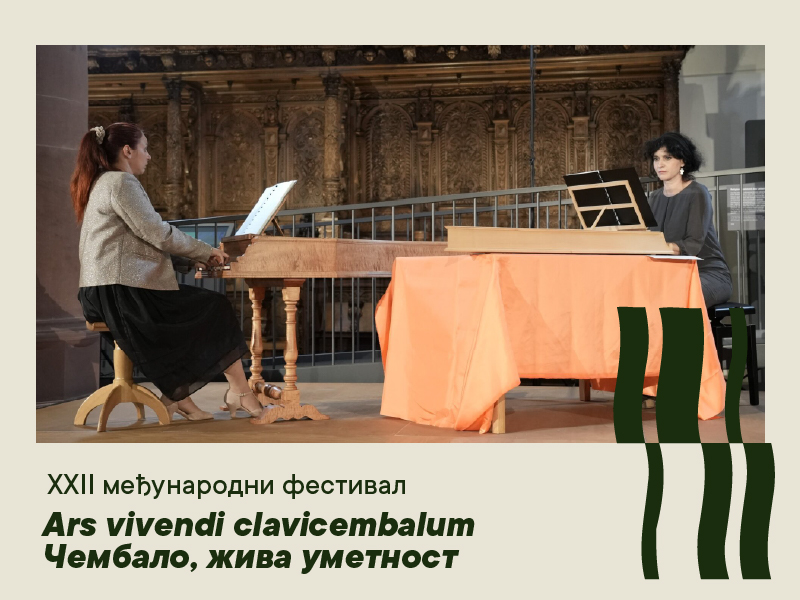
Swiss harpsichordist Corina Marti teaches at the Schola Cantorum Basiliensis music academy in Basel, and her repertoire is the result of extensive research into the music and instruments of the 15th and 16th centuries. This time, Corina Marti will perform together with our harpsichordist and organist Sofia Grgur. They will perform a concert entitled Sur le Pont d’Avignon or The fabulous world of Bonifacius Amerbach playing harpsichord and clavicymbalum at the Blessed Virgin Mary Cathedral, 75 Hadži Milentijeva Street. With this program Sofija and Corina explore the wealth of early European keyboard music, providing a magical glimpse into a highly virtuosic world, performing on a rare lineup of instruments: 2 metal-strung clavicymbalum and a harpsichord.
The concert is being realized with the support of the Swiss Embassy in Belgrade and in cooperation with the 20th Early Music Festival.
Tickets (1000 RSD) are available on the Gis Tix website, as well as on the day of the concert at the entrance to the Cathedral.
Sur le Pont d’Avignon or The fabulous world of Bonifacius Amerbach
The 14th century
Anonymous
Kyrie
Giovanni da Firenze (1270-1350)
Per Larghi Prati
Anonymous
Benedicamus domino
The 16th century in Swiss manuscripts
Anon/Fridolin Sicher (1490–1546)
Ach Jupiter
Hans Kotter (1485–1541)
Praeludium in la
Spanieler Tanz
Pierre Moulu (c. 1484–1550)
Ami souffre que je vous aime
Johannes Weck (c. 1495–1536)
Ein anderer Tanz
The 15th century
Anonymous
Praeambulum in La
Anonymous
Bohi svemu krali nebeskemu
Anonymous
Generari voluit
Anonymous
Der Winter
Anonymous
Mit ganczem Willen
Anonymous
Ja falla
Petrus Wilhelmi de Grudencz (c. 1400–c. 1480)
Iacob scalam
Anonymous
Redeuntes in d
More from 16th century Switzerland with a small holiday at the Baltic sea
Orlando di Lasso (1532–1594)
Bon Jour mon Coeur
Anonymous (c. 1590)
Ardant
Josquin des Prez (c. 1450–1521)
Das lang Ave Maris
Anonymous (c. 1590)
Tanz
Paul Hofheimer (1459–1537)
Nach willen din
Andernach uf dem Rgin lag
Hans LeoHassler (1564–1612)
Junckfrau dein schöne Gstalt
…and some sparkles from the 15th century
Joan Ambrosio Dalza (?)
Calata ala spagnola ditto terzetti
Anonymous
Hic est precursor
Anonymous
Amen
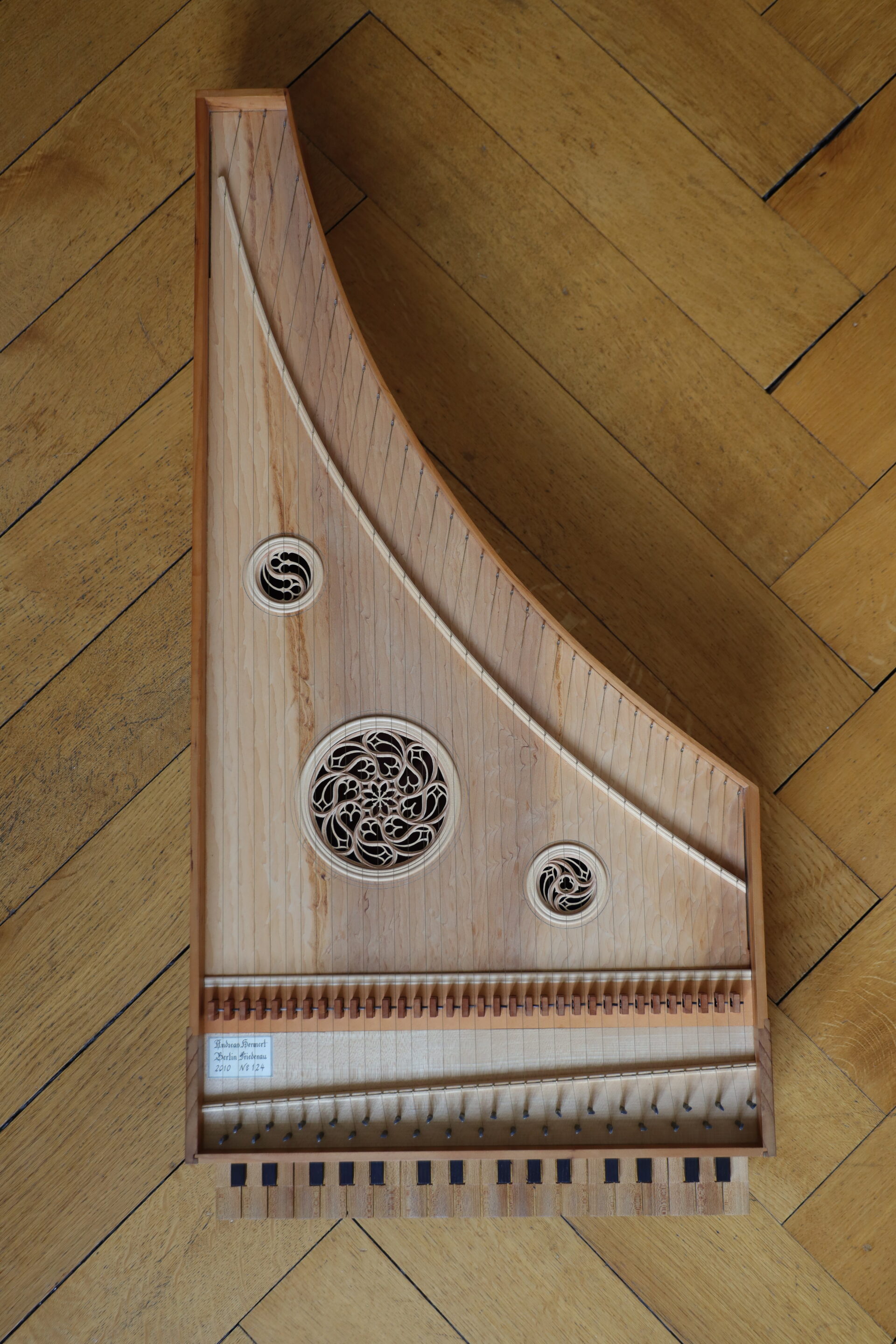
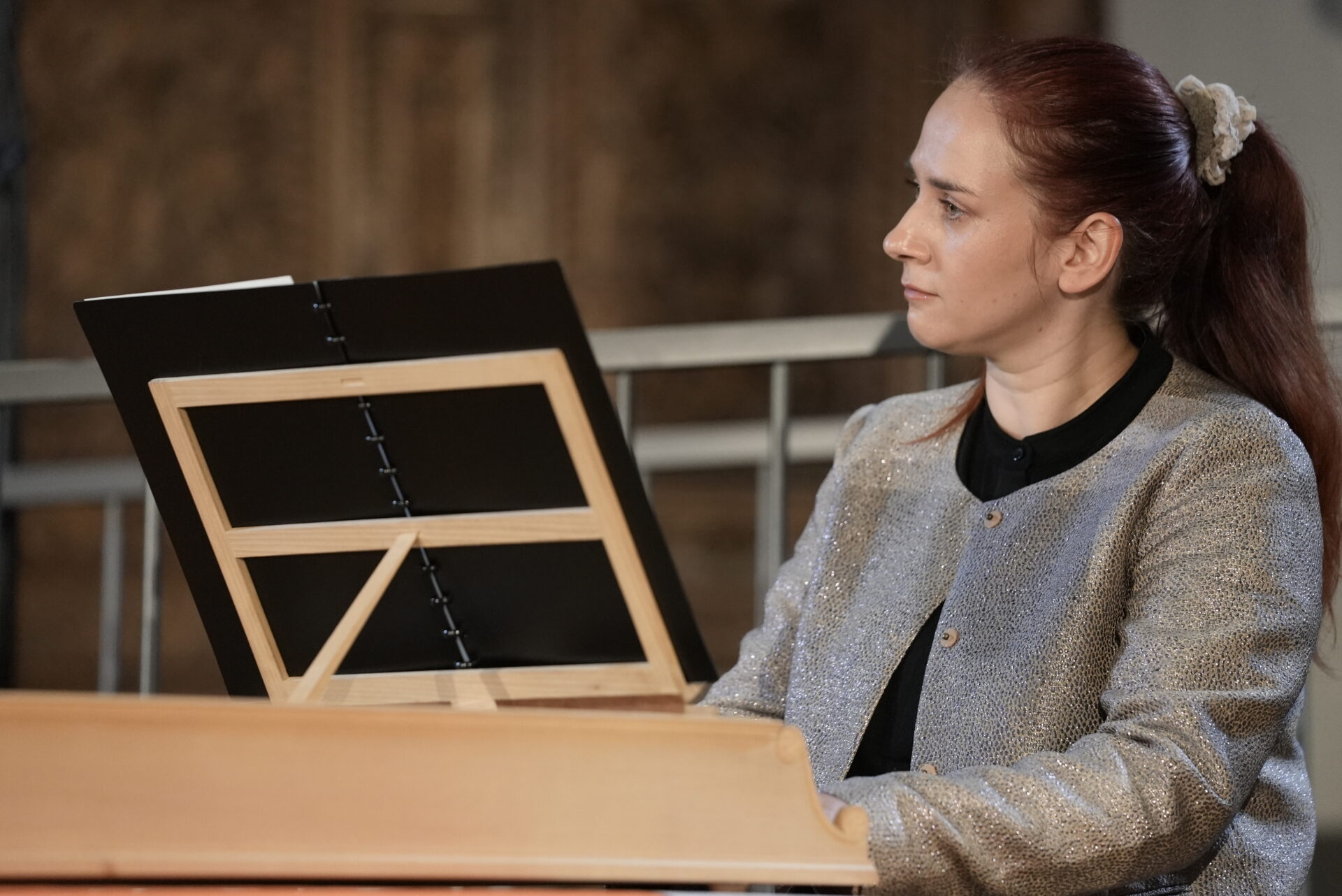
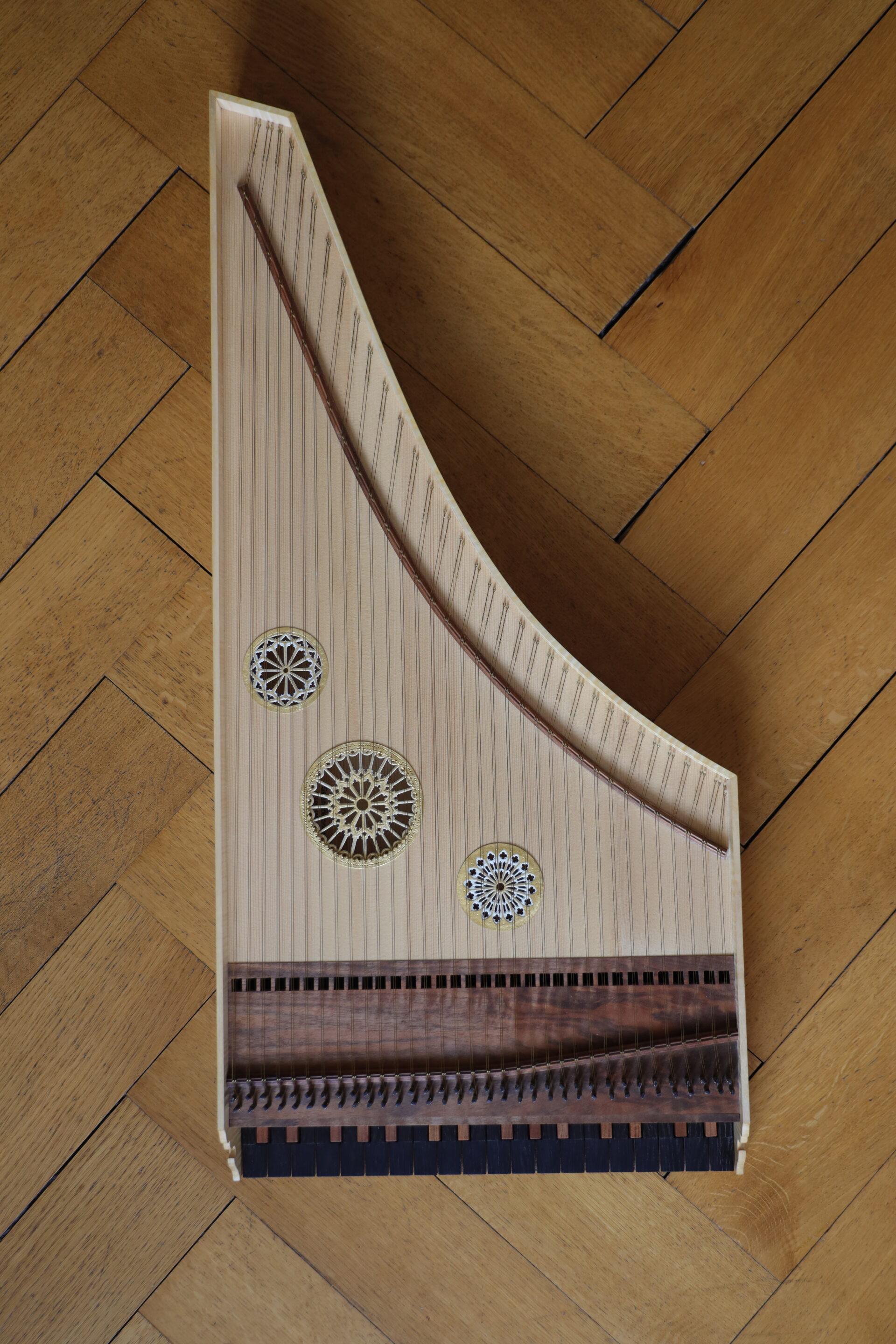
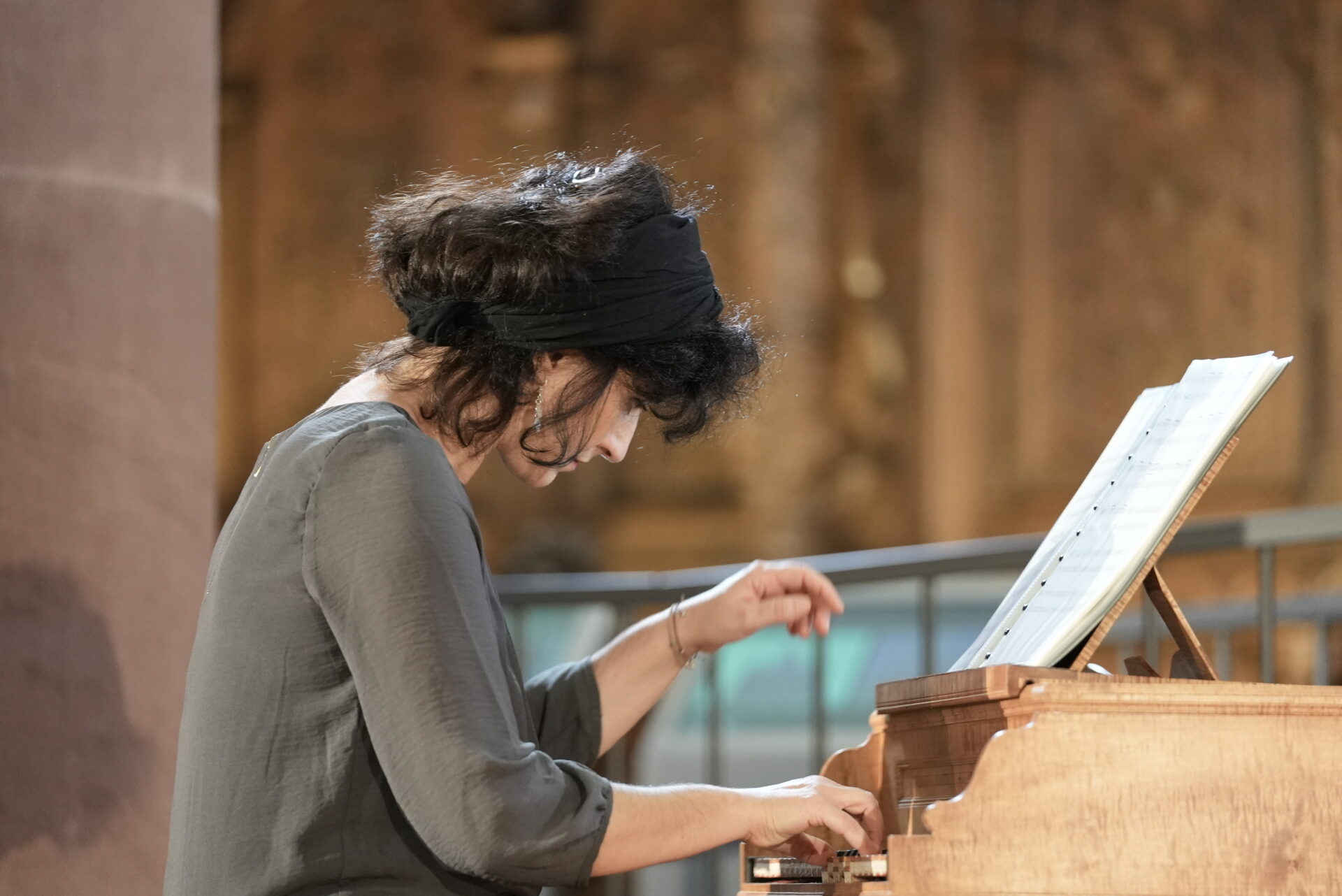
Biographies:
Harpsichord and recorder player Corina Marti is internationally recognized for her ‘strikingly superior’ and ‘expressive’ (Toccata) interpretations, and ‘infallible’ (Diapason) technique.
Her extensive discography of repertoire ranges from the fourteenth-century istanpitte and intabulations to – and beyond – the chamber music and solo concertos of the High Baroque and reflects the breadth of her musical interests and technical skills.
She leads a full life as a soloist, chamber musician and teacher, travelling regularly across Europe, both Americas, and the Middle and Far East.
She has appeared with numerous early music ensembles and orchestras (including Hespèrion XXI, Coro della Radiotelevisione Svizzera Italiana and Helsinki Baroque Orchestra) and is artistic co-director and founding member of La Morra, an award-winning Late Medieval and Early Renaissance music ensemble which ‘never fails to keep the listener’s attention alive’ (Gramophone).
Her ongoing research into aspects of the repertoire and reconstruction of late-medieval and early-renaissance keyboard instruments and recorders has contributed substantially to the present-day revival of these instruments. She teaches the next generation of early music performers at the Schola Cantorum Basiliensis in Basel, Switzerland, and in masterclasses worldwide.
Sofija Grgur is a well-recognized Serbian organist and harpsichord player. She pursues a versatile career as a soloist, conductor, accompanist (basso continuo), improvisor and specialist in early music performance practice. She obtained her bachelor’s degree at the Belgrade Music Academy (multiinstrumental department, organ) and continued her studies at the Hochschule für Musik Würzburg, where she obtained her concert diploma for solo organ, a bachelor’s and a master’s degree in church music, as well as a bachelor’s and a master’s degree for harpsichord and other historical keyboard instruments, such as the fortepiano and clavichord.
Her post-graduate studies brought her to the renowned „Schola Cantorum Basiliensis“ in Basel, Switzerland, where her focus on historical improvisation gave her in-depth knowledge of the genre and form where she feels most confident and at home.
Sofija Grgur was awarded scholarships from the Serbian Foundation for young talents „Dositeja“, as well as from DAAD and other international foundations. After winning awards at several competitions, both as a soloist and as a chamber musician, she now works regularly with internationally acclaimed ensembles as a soloist, musical director and conductor. She is also a founding member of the Ensemble Interrogatio, a group specializing in the performance of lesser-known works of early music, while also offering programs combining early music with contemporary works.
Making music with other keyboard players has been an important part of Sofija’s musical upbringing. This kind of “dialogue of the keyboards” found its natural expression in the creation of the harpsichord duo Sofija established with her long-time friend Jovana Topalov. The two met during their student days and ever since have enjoyed a fruitful collaboration, working and performing together as often as possible.
Sofija Grgur lives and works as church music director and organist in Zürich.
Source of the photo material: Basel’s forum for early music ReRenaissance